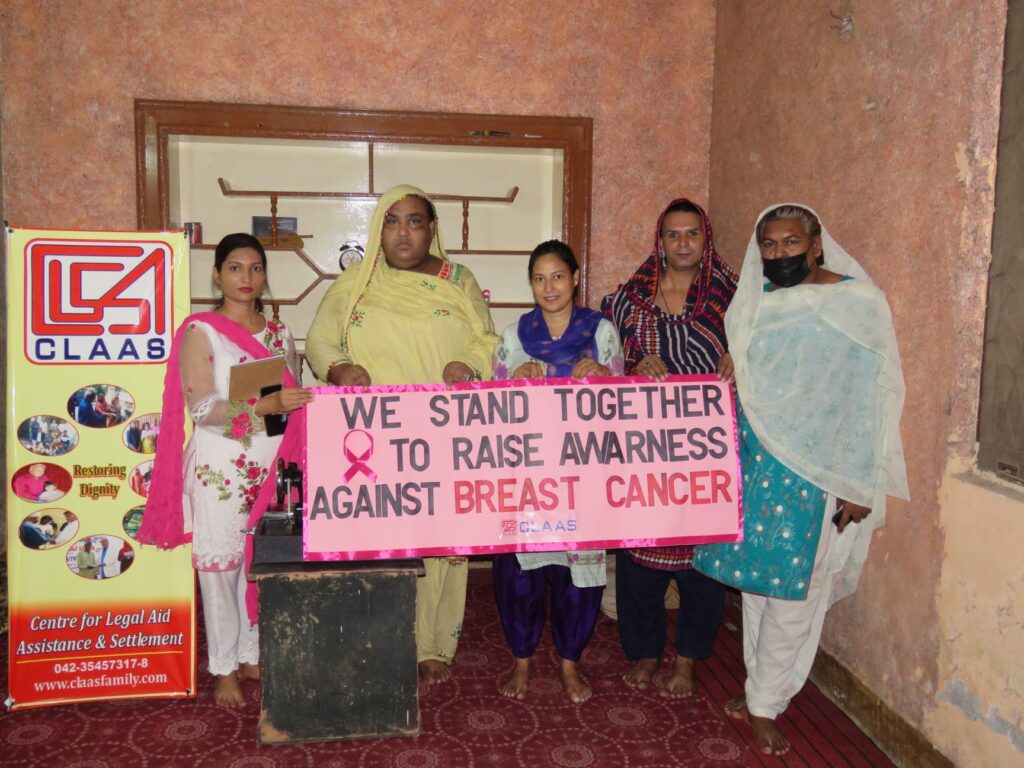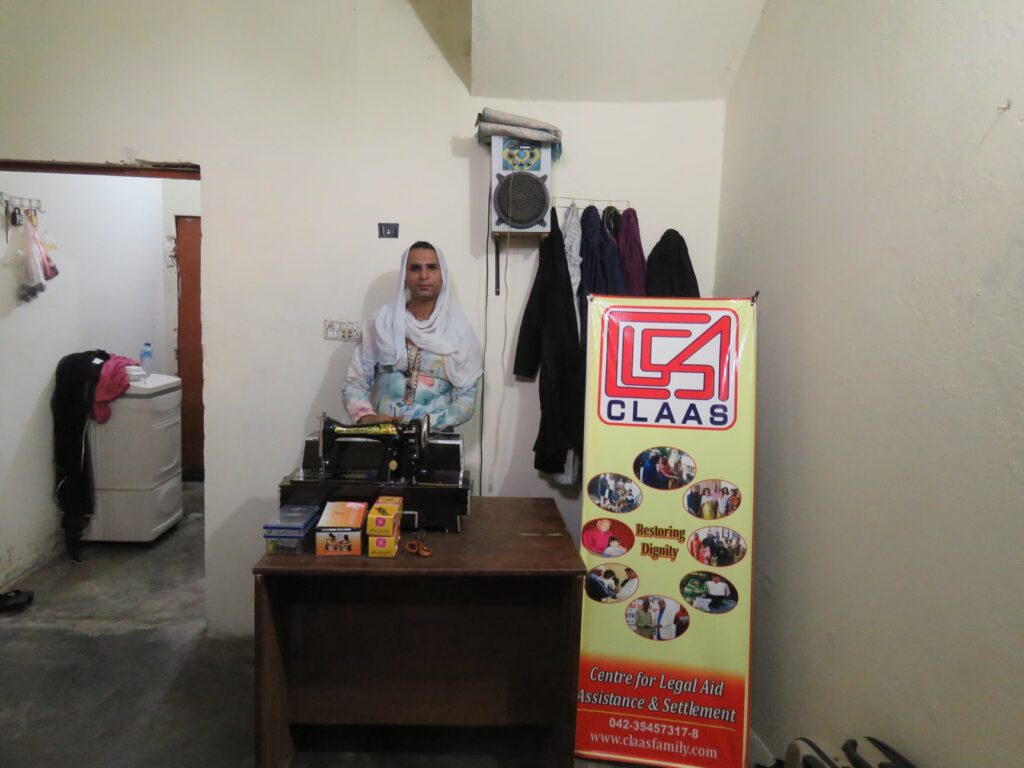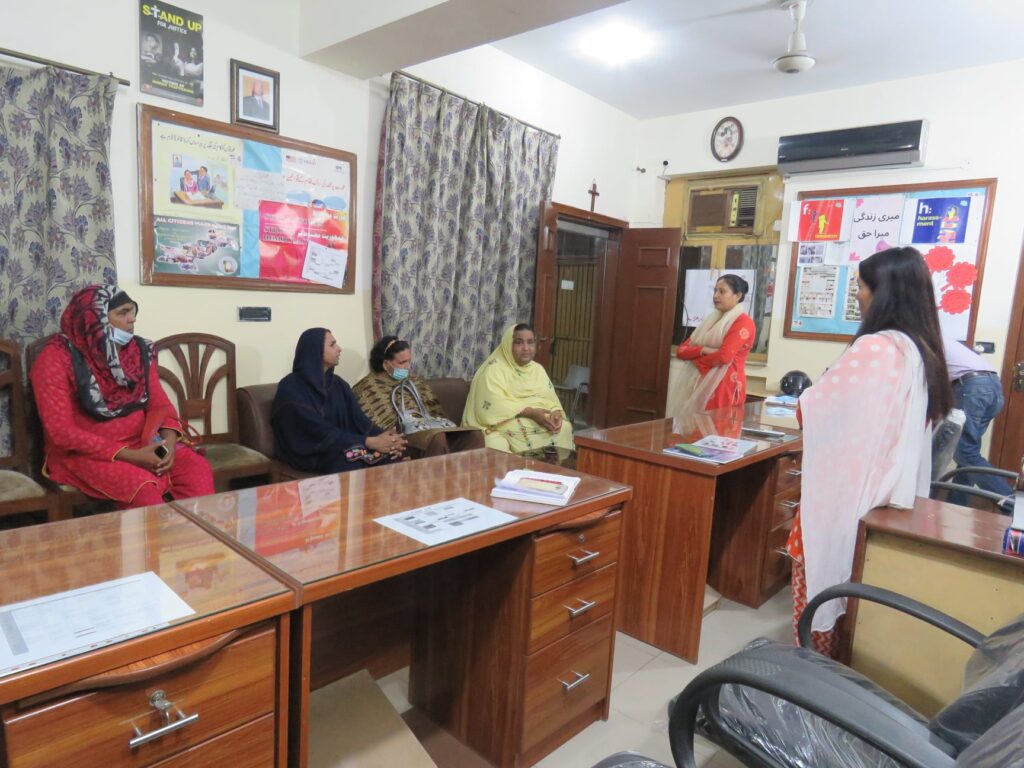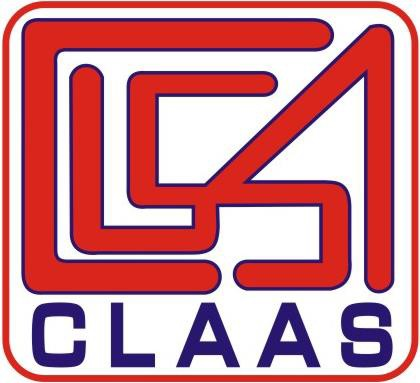CENTRE FOR LEGAL AID ASSISTANCE & SETTLEMENT
UPDATES
- Rawal a young Christian boy burnt in a brick kiln at Faisalabad
- Christian men falsely implicated in Jaranwala controversy.
- Justice Prevails: Christian Brothers Freed of Blasphemy Charges by ATC
- Justice Prevails: Christian Brothers Freed of Blasphemy Charges by ATC
- Delegation visited CLAAS in November,2023
Awareness-raising sessions for transgender

There are a number of grassroots issues that transgender people and other marginalized communities are facing on a daily basis in Pakistan. These include a lack of access to quality education, employment, healthcare, and housing. Transgender people and other marginalized communities in Pakistan often face discrimination and violence, both from communities and the government. In 2021 CLAAS started working with transgender people; they were part of community awareness sessions. Some of the most pressing issues of the transgender community are social isolation and exclusion, economic marginalization, lack of legal recognition, discrimination, and violence. To better understand their needs and issues CLAAS opened its platform for transgender and engaged them in community outreach programs and relevant awareness-raising sessions.


Human rights violations and discrimination on the basis of gender identity is a sordid reality in Pakistan. In recent years, violence against transgender people has been on the rise. Besides daily abuse this cornered minority have the extra stress of coping with their sexual orientation in our society.
In 2018 Pakistan the National Assembly passed a Transgender Rights Bill allowing people to choose their gender and to have that identity recognized on official documents, including national identity cards. Through this bill, they were also granted the right to inheritance, though there is little evidence of those rights in practice.
Many transgender people in Pakistan are disowned by their families and are forced to fend for themselves. They live with their gurus (mentors). This guru-chela relationship is similar to a master-disciple relationship where transgender people are sheltered and supported by their mentors, who take care of them in times of need. Their families even abstain from taking part in the last ritual rights of transgender as they are thought to be against Islam. Cultural and institutional discrimination against the transgender community have resulted in a lack of education and employment opportunities for them.
Almost 90% of the transgender population in Pakistan earns their living by begging, sex work, and dancing at weddings. Sex work and begging have been outlawed in Pakistan, while dance rituals are seen by religious authorities as un-Islamic. For their survival they have no option but to pay monthly bribe to police and resort to underground sex work which often leads to exploitation and serious sexual abuse.
